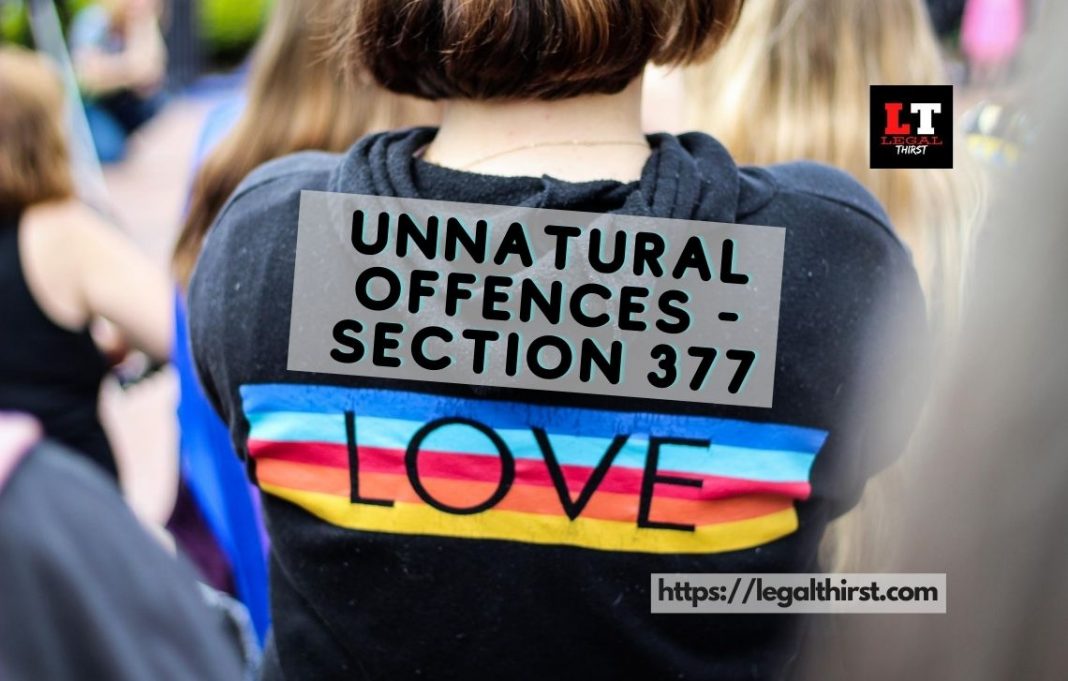This summary blog defining Unnatural Offences under Section 377, Indian Penal Code, 1860; is written by Trishla Dwivedi, a law student at Banasthali Vidyapeeth, Jaipur.
Barrier in giving justice based on sexual orientation and gender identity
Unnatural Offences defined under Section 377 IPC
India has an extremely powerful and dynamic constitution; that gives rights and protection to every citizen of this nation whether he is in majority or in minority. LGBTQ group comes under minority, society always treats them in an unexpected way. They are denied their fundamental rights.
IPC (Indian Penal Code) has been introduced in India during the British period in 1860; if the same-sex gender commits intercourse it amounts to be an offence. Earlier, homosexuality was considered as an unnatural offence which is against the order of nature; which directly violates the rights given under Article 14, 15, 19(a)(d), and 21. The law governing the unnatural sexual offence in India comes under the ambit of section 377 of IPC; which had a discriminatory effect as it grossly violates (homosexual individual’s) right to privacy and liberty embodied in article 21. The language of section 377 is unclear and irrational. It is impossible to determine what the order of nature is and what is not.
Table of Contents
Section 377 IPC
Section 377 says: whoever voluntarily has carnal intercourse against the order of nature with any man, woman or animal; shall be punished with imprisonment for life, or with imprisonment of either description for a term; which may extend to ten years, and shall also be liable to fine.
Explanation
Penetration is sufficient to constitute the carnal intercourse necessary to the offence described in this section.
This had led to many controversies and also laid down questions regarding the constitutional validity of this section. But, later in September 2018, a five-judge constitution bench of Supreme Court; decriminalized consensual homosexual activity among adults in Navtej Singh Johar V. UOI case, which means now the sexual activity of whatever nature among consenting adults is not punishable. Adults are mature enough that they can make their own decision. Law needs to be invoked only in the absence of consent. Nonconsensual sexual activity among adults irrespective of consent with minors or with animals still continues to be a punishable crime. Penalizing consensual sexual acts among adults is clearly the violation of their right to life, personal liberty privacy.
By this remarkable judgement of the Supreme Court; LGBTQ groups were happy as their identity has been recognized in the society; and they got a new hope for their survival.
Disclaimer: The opinions and views in the articles and research papers published on this website; are personal and independent opinions of the author. The website is not responsible for them.
Legal Thirst has created a telegram group for exchanging legal knowledge, Events, and various opportunities.
You can click on this link and join:
Follow Legal Thirst on Instagram and Subscribe to our YouTube channel for more amazing legal content.



